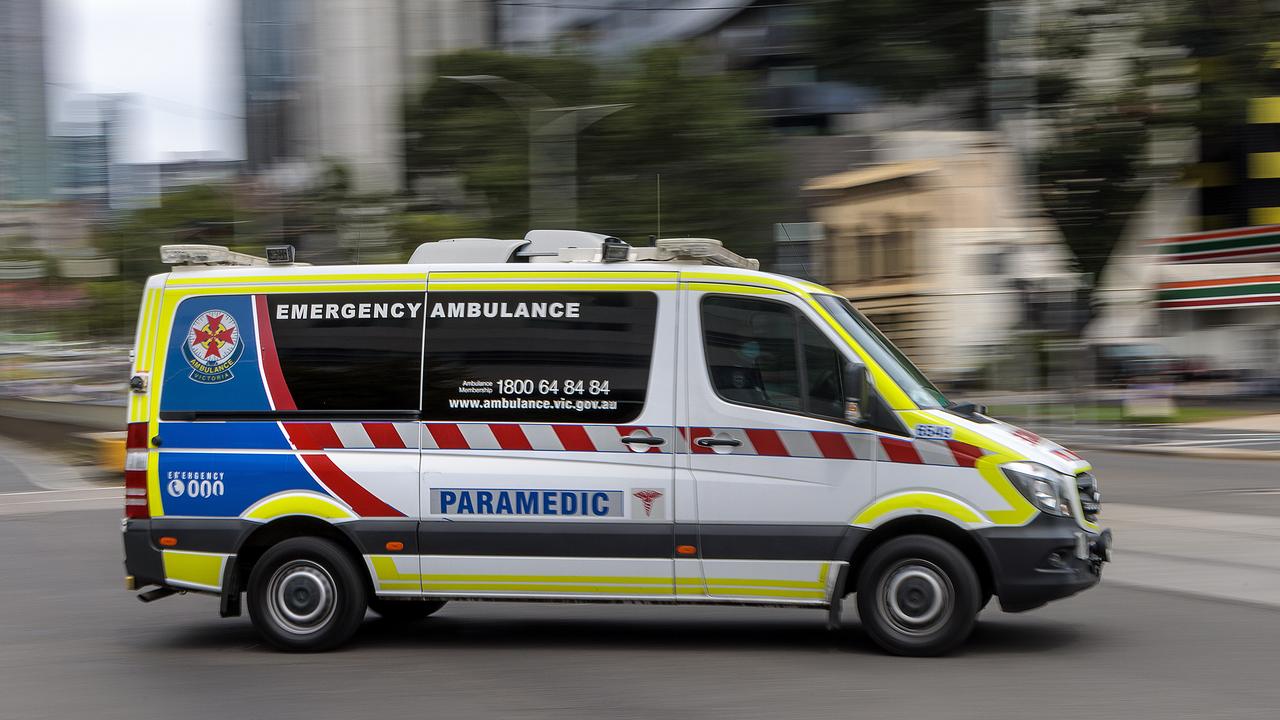Recruitment drive launched as the number of Country Fire Authority volunteers continues to fall
Women, migrants, students and people moving to the regions have been identified as potential new recruits as volunteer numbers fall and Victoria’s bushfire risk soars.
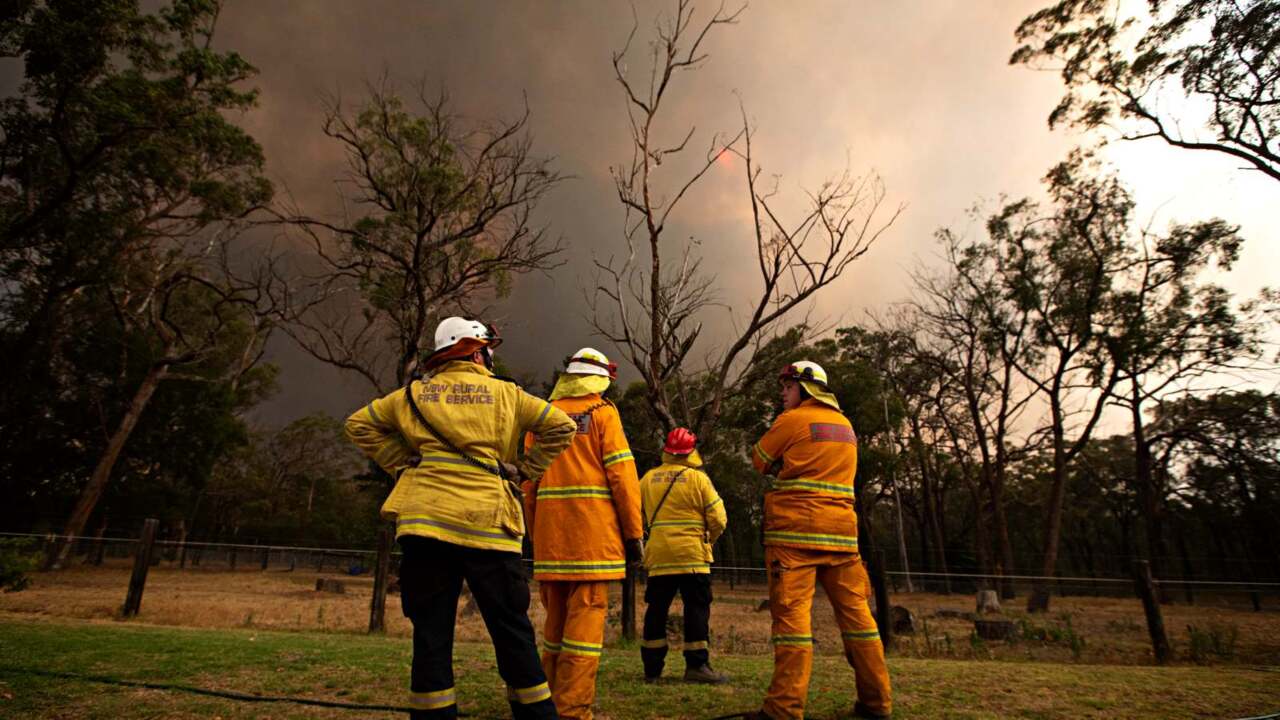
Victoria
Don't miss out on the headlines from Victoria. Followed categories will be added to My News.
Migrants, students, tree changers, tradies and health workers are among the Victorians being urged to step up and join the state’s volunteer fire fighting service ahead of summer as Victoria faces increasing bushfire risks over the coming years.
New data has revealed that the number of Country Fire Authority volunteers has fallen to 28,785.
The figure is down from 38,335 in 2014-13, and well below the Andrews government’s “aspirational” target of 38,500 to 39,5000 outlined in the 2023/24 budget papers.
The continued loss of firefighters from the force has prompted the CFA to re-evaluate the service’s recruitment strategies with “non-traditional” volunteers including women, immigrants, students and people moving to the regions among those identified as potential new recruits that could save the service from further losses in the future.
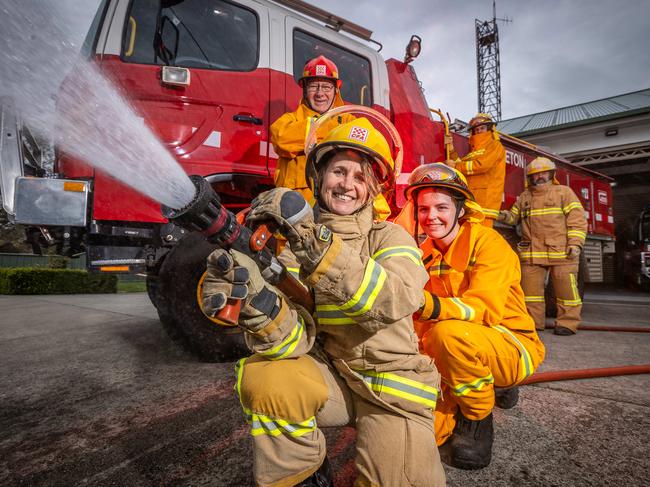
Speaking to the Herald Sun, CFA Chief Officer Jason Heffernan said that current volunteer levels were “sufficient” to handle the upcoming fire season, however, more young Victorians needed to be signed up now with at least 400 brigades needing new recruits in the pipeline for the tough years ahead.
“Since the fire services reform the CFA has returned to a volunteer environment,” he said.
“This means we are subject to the peaks and troughs of volunteer numbers, like any other volunteer organisation across Australia … and certainly like most other organisations undoubtedly we are seeing a decline in general of formal or traditional volunteering.
“So we are having a really good look at our volunteer structure,” Mr Heffernan said.
Women have been identified as a key group for recruitment as they “represent 50 per cent of the community”.
“We’d be crazy not to harness that capacity and capability within our community,” Mr Heffernan said.
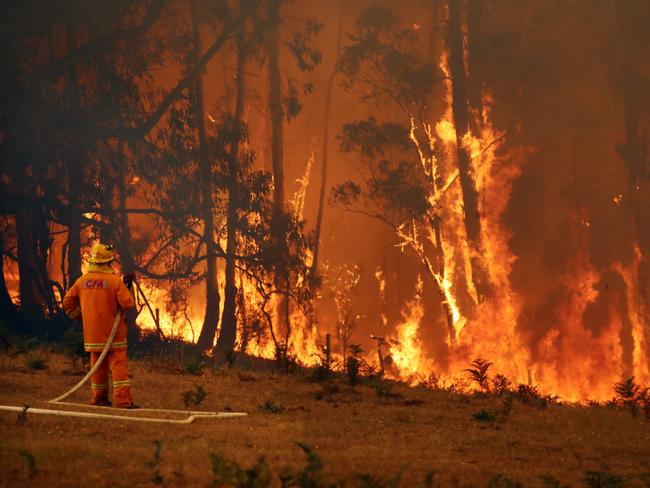
University students who had spare time around their study commitments were also being called on, as well as new migrants.
Data shows up to 30 per cent of Victoria’s population is born overseas and Mr Heffernan said these newcomers were crucial to get on-board.
“Victoria is a melting pot community and for me I would love to see that reflected in the CFA,” he said.
People flocking to regional Victoria from the city after the pandemic could also help save the service from future collapse.
Data from the Regional Australia Institute (RAI) found more than 117,000 people spreading out across Victoria between 2016 and 2021, with the trend accelerating during Covid.
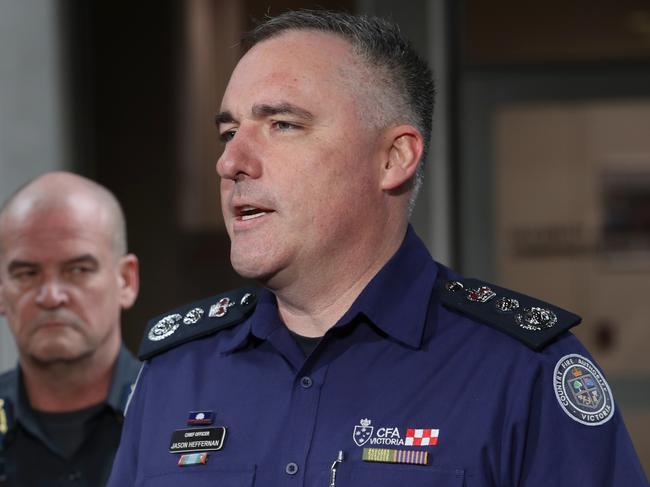
Mr Heffernan told the Herald Sun that local brigades would welcome tree-changers with open arms.
Training for frontline volunteers includes mandatory 10 to 20 hours of practical safety and fire training, which could take up to six months to complete, so people keen to be on the fireground need to sign up now to be ready for the 2024/25 season.
But Mr Heffernan emphasised that not every volunteer was needed on the front line holding a hose, and that support roles could be filled much sooner before the end of the year.
“It’s not just about fighting fires,” he explained.
“We have those operational support roles and we are always after good administrators, treasurers, secretaries.
“We are after people that can man our rehabilitation areas, like paramedics, doctors and nurses. The ability for people to apply their professionals skills, trades and abilities, within our organisation is there as well. So regardless of your skills, or whether you’ve got a lot of time or a little time, come and have the conversation with us.”
The new push comes as Victoria faces a high risk bushfire season this summer after several wetter and colder years.
The national bushfire outlook report warned of exceptionally high fuel loads following La Nina conditions.
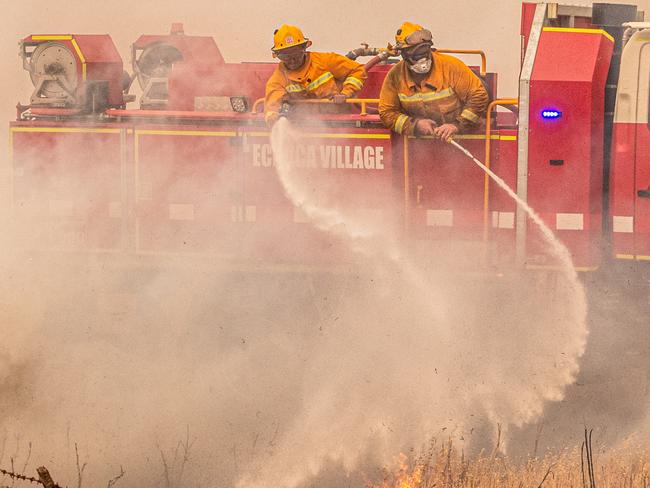
To make matters worse, this week the Bureau of Meteorology officially declared Australia was entering an El Nino phase with the eastern coast facing significantly drier conditions.
Emergency Services Minister Jaclyn Symes, last week flagged the state was expecting an earlier start to the fire season and called on Victorians to get involved in volunteering.
“Emergency service volunteering is one of the most rewarding jobs you could get,” she said.
“They are fantastic community members and are so passionate about keeping people safe and it’s a great environment for people to volunteer in.
“Go check it out if you’re thinking about it.”
To learn more visit www.cfa.vic.gov.au/volunteer
‘We have a place for practically anybody’
For almost two decades of his life Greg McIntyre has dedicated his time to the Kyneton CFA – a role he says keeps him connected to his community.
And now as captain of the brigade he’s putting out the call for others join and support the service in the years to come.
“We have a place for practically anybody. You don’t have to be a particular style of person,” he shared.
“It doesn’t matter who you are or what you are. People shouldn’t disqualify themselves. If you’ve got time and energy to offer, we’d like to hear from you.”
Currently at the urban-based brigade there are 30 operational roles and 60 support roles with vacancies always popping up.
“There is the opportunity to learn new skills and use those skills to help people who are having their worst day ever,” he said.
“There’s also the social aspects, and while there are a lot of variations between people, the common thread is that people want to come together to help their community.”
But getting people ready takes time for volunteers to settle in, so Mr McIntyre said it was always important to get new recruits in the pipeline as soon as possible.
“It takes three to five years to get somebody fully trained up,” he said.
“While we don’t have an imminent danger, we do need to fairly soon get new people on to make sure we’re able to service the community in the years to come.”
Kyneton is just one of many brigades currently recruiting.
Main reasons people don’t volunteer
Committing time to your community can be a huge challenge, but it can be hugely rewarding. Don’t let these common barriers stop you from joining.
I work full time or have kids at home
These days most families are dual income which means we are all busy clocking in hours at work or taking care of kids. But the good news is that volunteering at the CFA is flexible.
Most meetings and training are held on weekends or weeknights for people who want to commit to becoming an operational firefighter.
Local brigades can also tailor your role to match your availability. This means you may not be called on to fight fires and help in emergencies but you may be called on to help co-ordinate and fundraise, which is just as important and still helps you be part of the volunteer family.
I don’t have enough time, how many hours per week will being a volunteer require?
Most Victorians feel they don’t have enough time to take on a volunteer position.
But a CFA role, for most people, will not require endless commitment of your time.
You can choose to take on a supportive role that requires less dedication and training. But if you want to do more and get actively involved in firefighting then you need to put in more time to boost your skills. We also know life changes so the CFA can be flexible while you go through different life stages, allowing you to tailor your commitment to what will suit your family and work.
I don’t really understand what a CFA volunteer does
CFA firefighters respond to a range of incidents including wildfires, structural fires, road accidents, rescues, hazardous material incidents, floods and other emergencies.
To respond to these the CFA needs a whole range of volunteers that have different roles such as building local relationships, engaging the community, educating about fire danger, fundraising, helping out with local events, promoting the local brigade, administration, logistic, financial support, health and safety, training, junior program leaders, and more.
There’s a role to suit everyone.
I don’t know anyone
Social anxiety about joining a new group can often hold volunteers back. But, in reality lending a hand can be a great way to grow your social and professional network.
Do I need to be fit?
Firefighters definitely need to be able to engage in strenuous physical activity, and certain levels of fitness will be required. But there are plenty of support roles that do not require the same level of activity.
Am I old enough?
Anyone aged 16 years and above can join.
It will cost money
There is no cost to join the CFA, it only costs you time as all training and equipment is provided.
I can’t balance work and volunteering
People are time poor these days working long hours and often some people having multiple job, but many employers across Victoria take a socially responsible approach to volunteering by allowing their staff to commit time to a CFA role during business hours if required.
If you’re thinking of becoming a CFA volunteer, discuss this with your employer and see what sort of leave or flexible working arrangements can be put in place to allow you to balance any work and CFA duties.
I don’t know anything about firefighting and am worried it will be dangerous
If you are going to be an operational firefighter and head out to scenes, there is essential training that must be completed.
As a CFA volunteer you’ll learn everything you need to know about fire safety and incident response.
But for those not wanting to be on the frontline there are also many roles in the CFA that are just as important such as community engagement, education and fundraising.
I don’t want to get hurt
Safety is the priority in the CFA and training is key to keeping volunteers away from danger.
But the CFA recognises that if you are injured while in service it may impact your employment and your income. If you sustain an injury or illness as a result of your service with CFA, you are entitled to submit a claim for compensation. Assessment and acceptance of a claim is based on a process and criteria including both factual and medical information. If a claim is accepted, compensation is a combination of weekly payments for assessed loss of income and medical expenses including medication and treatment. CFA’s internal injury recovery team will work with you to support your recovery.



